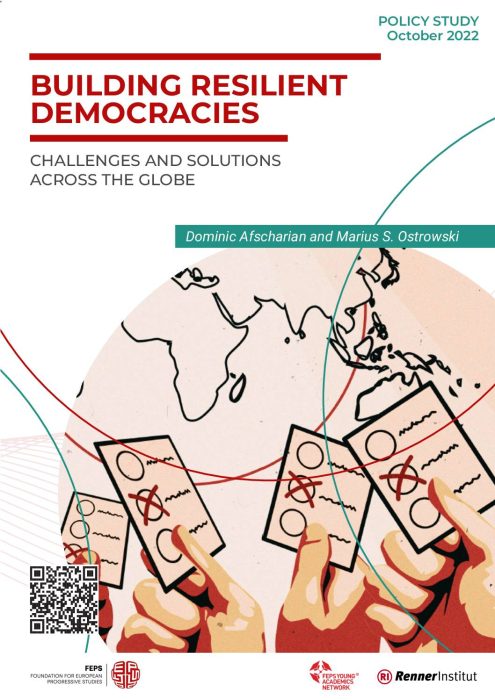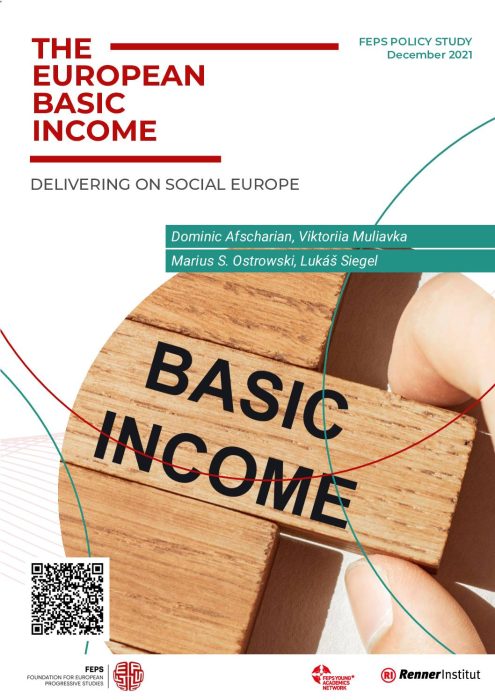PhD candidate Tübingen University
Dominic Afscharian is a research officer and Ph.D. candidate at the Institute of Political Science of the University of Tübingen. He holds degrees in political science and economics, received his previous academic training at Heidelberg University, and has worked with think tanks, consultancies, and academic institutions in the past. Specialising in mixed-methods public policy analysis, he primarily focuses on European social policy. Beyond conducting analyses of this subject in and of itself, he also considers its intersections with other policy fields along with national social policy, particularly in Germany. At the University of Tübingen, he is currently completing his dissertation on different visions of a “Social Europe”. In his further research, he engaged amongst other things with issues such as migration, labour market policy, European crises, and welfare state performance on various interdisciplinary and international projects. For FEPS and the Renner Institut, he explored progressive perspectives on a European Universal Basic Income. Finally, he worked as a FEPS YAN ambassador, researching challenges and solutions around democratic resilience for FEPS and for the Progressive Alliance.
Across the political spectrum, there is widespread agreement that the European Union (EU) needs a palpable social dimension. In this FEPS YAN policy study, the authors provide a research-driven policy proposal on how this social dimension can be achieved in the light of the diversity of national welfare systems in the EU.
They argue that a Universal Basic Income (UBI) could be a conceptually appealing policy to be implemented at EU level, complementing national welfare states. Due to the Covid-19 pandemic, the policy is receiving unprecedented and ever-increasing attention, and enjoys widespread public popularity, but is viewed with scepticism by major political parties.
This paper is a unified source of information for progressive policymakers, advocates, consultants, and researchers who are interested in (a) how a European UBI could be concretely designed and (b) the reasoning and justifications behind its concrete design decisions. In order to formulate a policy proposal that could potentially foster cross- partisan compromises and move public policy preferences and political reality closer together, the authors conducted a comprehensive review of historical and contemporary UBI debates, gathered the key arguments presented in academic, popular, political, and organisational sources, and reflected on them from logical, normative, and empirical perspectives.
Based on the most plausible arguments for and against a UBI, they designed a concrete policy proposal for a UBI at the EU level that responds to broadly progressive ideals from different partisan backgrounds. The result is an ambitious yet feasible proposal that bridges political divides and, if implemented, would be the most substantial leap for Social Europe yet.
Read the paper:
The European Basic Income
Political Mentor: S&D MEP Agnes Jongerius
Academic Mentor: Lorena Lombardozzi, Senior Lecturer in Economics at the Open University.


